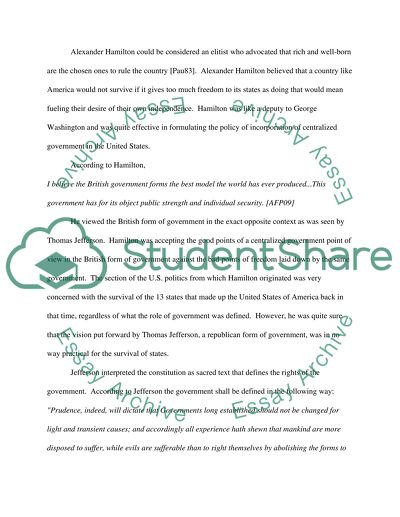Cite this document
(“Hamiltons and Jefferson's political philosophy Essay”, n.d.)
Retrieved from https://studentshare.org/politics/1412584-hamiltons-and-jeffersons-political-philosophy
Retrieved from https://studentshare.org/politics/1412584-hamiltons-and-jeffersons-political-philosophy
(Hamiltons and Jefferson'S Political Philosophy Essay)
https://studentshare.org/politics/1412584-hamiltons-and-jeffersons-political-philosophy.
https://studentshare.org/politics/1412584-hamiltons-and-jeffersons-political-philosophy.
“Hamiltons and Jefferson'S Political Philosophy Essay”, n.d. https://studentshare.org/politics/1412584-hamiltons-and-jeffersons-political-philosophy.


